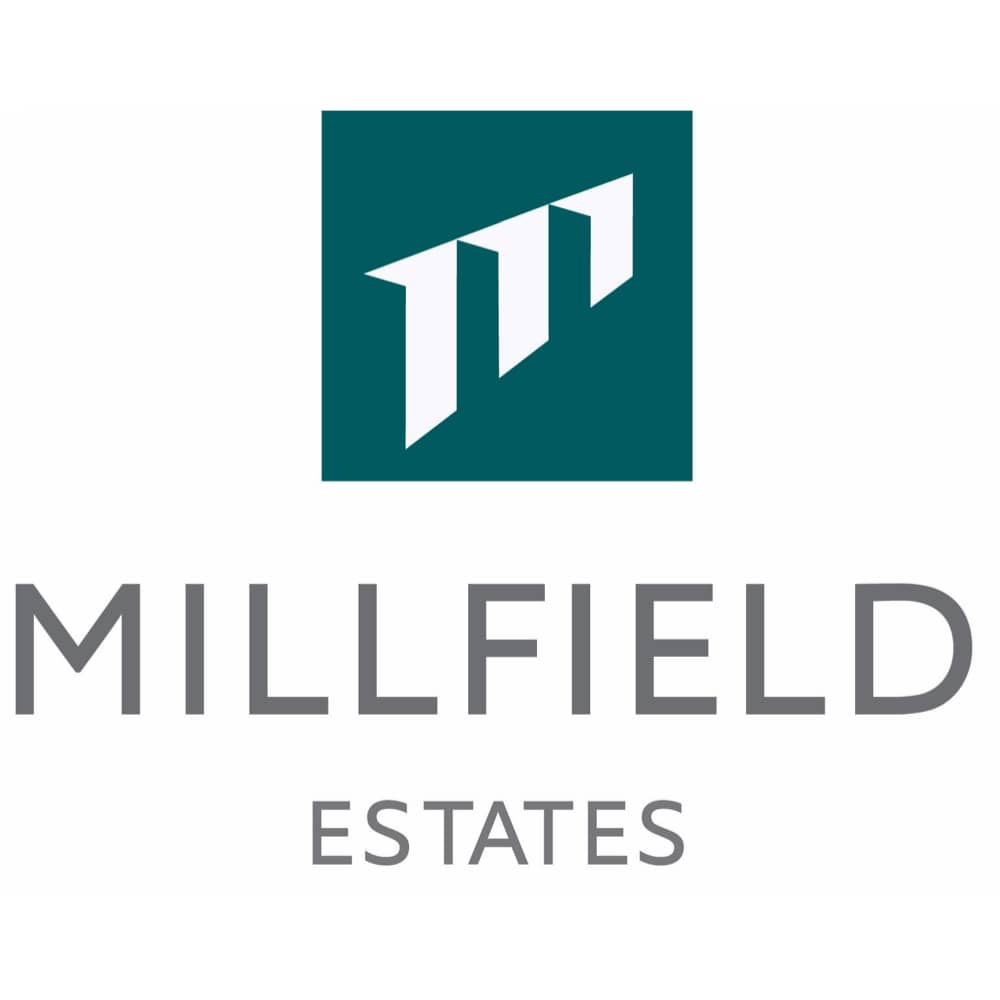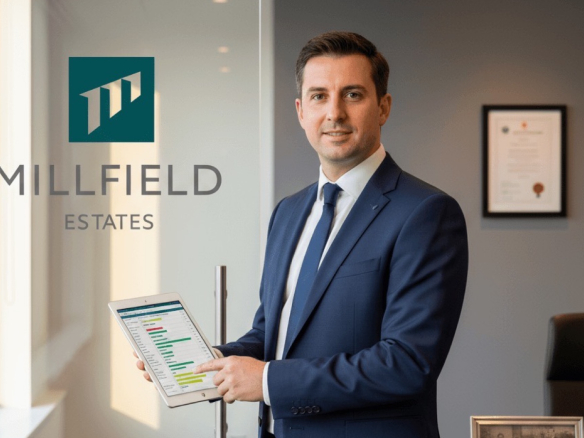Understanding the Basics of Commercial Property Insurance
Commercial property insurance is a vital safety net for businesses, yet it remains a topic many tenants overlook until problems arise. At Millfield Estates, we’ve witnessed countless situations where tenants faced unexpected challenges because they misunderstood their insurance responsibilities.
As a family-owned property company with over three generations of experience, we’ve developed a keen understanding of what makes the difference between adequate coverage and costly gaps in protection. Our portfolio spans from industrial estates in Cramlington to prime office buildings in London’s West End, giving us unique insights into the varied insurance needs across different property types.
When you sign a commercial lease, insurance isn’t just another box to tick—it’s fundamental protection for your business operations. But what specifically should you be looking for? And how does your insurance interact with ours as your landlord?
The Crucial Distinction: Landlord vs Tenant Responsibilities
One of the most common misunderstandings in commercial property insurance we encounter involves determining exactly what insurance coverage falls to us as landlords versus what you need to secure as a tenant. Let’s clarify this important distinction.
As your landlord, Millfield Estates typically maintains insurance for the building structure itself, including permanent fixtures and common areas. Our policies generally cover risks like fire, flooding, and structural damage to the property.
However—and this is absolutely critical—our insurance may not extend to your business contents, equipment, stock, or improvements you’ve made to the space. This means if there’s water damage that ruins your inventory or a break-in that results in stolen equipment, our policy won’t cover your losses.
We’ve unfortunately seen businesses face significant financial hardship because they assumed the landlord’s insurance would cover their belongings. This misunderstanding is precisely why we believe in educating our tenants about proper commercial insurance coverage.
Essential Coverage Every Commercial Tenant Should Consider
Based on our experience managing properties across the UK, from Bolton to Mayfair, we recommend tenants consider these essential types of coverage:
Contents Insurance: This covers your business equipment, furniture, stock, and other physical assets within your rented space. When calculating your coverage needs, consider the full replacement value of everything in your premises.
Business Interruption Insurance: If your operations are temporarily halted due to property damage, this insurance helps cover lost income and ongoing expenses. We’ve seen this coverage save businesses that might otherwise have gone under while waiting for repairs. From painful experience we recommend a minimum of 24 months coverage.
Public Liability Insurance: This protects your business if a third party suffers injury or property damage related to your business activities. Many of our leases actually require tenants to maintain this coverage.
Glass Insurance: Often overlooked, this covers the cost of replacing broken windows and glass fixtures, which can be surprisingly expensive in commercial settings.
Tenant Improvements Coverage: If you’ve modified the space—installed custom lighting, built partitions, or added specialised flooring—standard policies may not cover these improvements. Specific coverage ensures you’re protected.
Reading the Fine Print: Lease Requirements and Exclusions
Our leases at Millfield Estates typically specify minimum insurance requirements. These aren’t arbitrary demands—they’re carefully considered protections for both parties.
When reviewing your commercial lease, pay particular attention to:
Minimum Coverage Amounts: Your lease likely stipulates specific coverage limits, especially for liability insurance.
Named Insured Requirements: Some leases require the landlord to be listed as an “additional insured” on certain policies.
Proof of Insurance: Most leases from landlords require providing certificates of insurance annually or upon renewal.
Waiver of Subrogation Clauses: These prevent insurance companies from seeking reimbursement from the landlord after paying a claim.
We’ve experienced situations where tenants faced lease violations simply because they didn’t understand these requirements. Taking time to align your insurance with your lease obligations prevents uncomfortable situations later.
Common Property Insurance Pitfalls We’ve Observed
Managing properties from industrial estates in the North to retail units in prime London locations has given us visibility into common insurance mistakes:
Underinsuring Contents: Many businesses estimate replacement values based on depreciated costs rather than what it would actually cost to replace everything new.
Misunderstanding Liability Limits: The minimum liability coverage required by your lease may not be sufficient for your specific business operations.
Overlooking Business Interruption Coverage: This can be more important than contents insurance for some businesses, as extended downtime often leads to greater financial impact than property damage.
Failing to Update Policies: As your business grows and your use of the space evolves, your insurance needs change too. Annual reviews are essential.
How to Work with Your Landlord on Insurance Matters
At Millfield Estates, we pride ourselves on building strong tenant relationships. Our hands-on management approach means we’re always available to discuss insurance questions and concerns. Here’s our advice for productive insurance conversations with any commercial landlord:
Be Transparent: If you’re struggling to secure required coverage, tell us. We may be able to suggest brokers familiar with your industry or property type.
Ask Questions: If you don’t understand an insurance requirement in your lease, request clarification. It’s in everyone’s interest that you have proper coverage.
Coordinate Claims: If an incident occurs affecting both the building and your contents, coordinating the claims process between insurers can expedite resolution.
Share Certificates Promptly: Providing updated insurance certificates when requested prevents unnecessary follow-up and demonstrates your professionalism as a tenant.
Our tenant-focused approach at Millfield Estates has contributed to our excellent tenant retention. We believe clear communication about insurance responsibilities is part of building that trust.
Taking Action: Next Steps for Proper Coverage for your Commercial Property Insurance
We recommend these practical steps to ensure your business has appropriate insurance protection:
- Review your current lease to identify specific insurance requirements
- Schedule a comprehensive review with your insurance broker, bringing your lease details
- Consider bundling policies for potential cost savings
- Document your business contents with photos and records
- Set calendar reminders for policy renewals and lease-required certificate submissions
Proper insurance isn’t just about compliance—it’s about business continuity. Our decades of experience across various commercial properties has shown us that well-insured tenants recover faster from setbacks and maintain more stable operations.
We have found that our partner UKGLOBAL have always been flexible and open to meet our requirements.
We at Millfield Estates remain committed to supporting our tenants’ success through thoughtful property management and clear guidance on important matters like insurance. If you’re currently weighing your commercial property options, we’d be pleased to discuss how our approach to tenant relationships sets us apart from other landlords across the UK.




